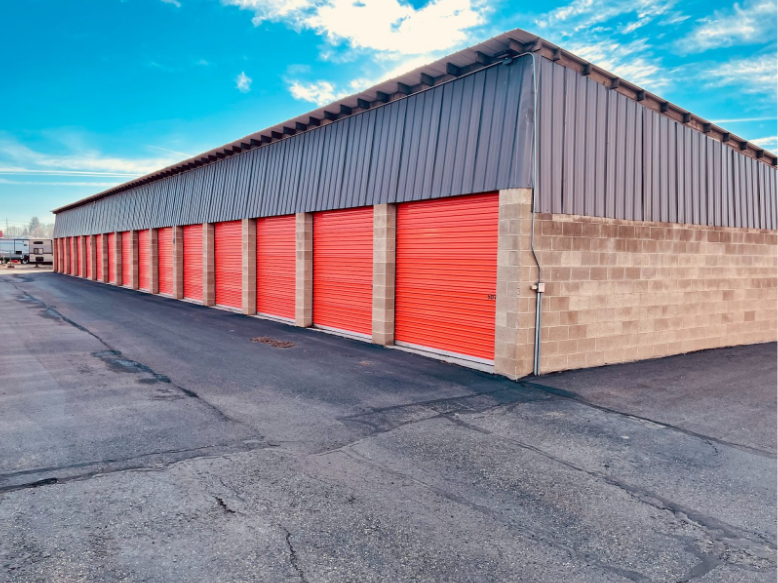Investors and potential business owners shopping for commercial real estate (CRE) aren’t limited to the four major types: retail, industrial, multi-family, and office properties. Specialty real estate is another option.
The term “specialty” is a catch-all that describes any commercial property that doesn’t fall into the four main categories.
Specialty real estate can be an ideal choice for an investor or business owner when:
Other types of commercial real estate are unavailable in a preferred area;
The purchaser has the knowledge and financing to turn a lifelong passion into a successful business; or
Existing commercial buildings have high vacancy indexes.
After conducting due diligence, an investor or business owner may locate market gaps that encourage the purchase of specialty real estate property.
We’ll provide details of these opportunities, examples of specialty real estate, and the advantages and possible drawbacks associated with this type of investment.
Examples of Specialty Real Estate
When searching for specialty real estate, these types of properties are commonly seen:
Self-storage buildings for consumers, small businesses, or both;
Amusement-based businesses, such as bowling alleys or indoor playgrounds;
Mobile home, trailer, or RV parks;
Marinas located near a beach or lake;
Vineyards, wineries, and breweries; and
Vacant churches, houses of worship, and similar properties.
Potential customers for a bowling alley come from all age groups, from Generation Z to Boomers.
Photo by @claritycontrol
Now that you’re familiar with the variety of specialty real estate for sale, let’s compare them to the four major types of CRE and how you may need to be prepared for additional research/due diligence before making an offer.
Pricing Options and Strategies
There is no average price per square foot for specialty properties since their potential for income varies widely. Again, here are some examples.
A self-storage building or mobile home park may be bargain-priced if it needs updates or renovations. A buyer who’s prepared to carry out these repairs may earn higher rates of passive income.
Buyers who prefer an instant money-earner may prefer a high-tech car wash or busy marina. However, these properties are usually more expensive.
Buyers planning to convert an older, vacant church into a multifamily property may find one at a bargain price. However, this may require negotiations with lenders and city officials. Older buildings may be protected by historical zoning.
There is another type of commercial real estate (CRE) property that falls between specialty and the four major types (retail, office, multifamily, and industrial). It’s often described as a mixed-use property.
Since the same brokerage may offer specialty and mixed-use properties, it’s worth learning why they differ.
Mixed-Use or Specialty?
Mixed-use properties may be comprised of two or three types of commercial properties or a mixture of commercial and residential properties.
Mixed-use developments often feature properties that complement each other, such as a four-star hotel with retail boutiques and a day spa.
Other examples of mixed-use properties include:
A low-rise apartment building with restaurants, cafes, and/or retail businesses located on its lower floors.
A building that features a mixture of apartment units and offices.
While a mixed-use property may bring in more passive income than specialty real estate, they’re not recommended for beginners.
It may be necessary for the buyer to locate and manage retail and residential tenants.
Mixed-use properties may require a complex assortment of permits.
Besides requiring a generally lower investment than a mixed-use property, here are more of the benefits of purchasing specialty real estate.
Specialty Real Estate Pros…
Owners of successful specialty properties often introduce their business with brand building. This helps your first property be successful and makes it easier to expand.
If your first purchase is a marina, and it becomes the most popular one in your area, you may want to build your brand presence by opening a second marina with similar amenities.
Marinas and dockyards’ scope of business can be expanded to include sailing lessons and repairs.
Photo by <a href="https://unsplash.com/@claritycontrol?utm_source=unsplash&utm_medium=referral&utm_content=creditCopyText">Joe Ciciarelli</a>
In addition, you can decorate both in distinctive styles that are instantly recognizable, although not necessarily identical. This is called environmental branding. The Starbucks coffee chain is well-known for incorporating this strategy.
Together with generally lower price tags, specialty real estate can be a reliable source of passive income, often with the option to sell at a profit. However, there are some potential drawbacks to consider.
…And Cons
A specialty real estate purchase often relies on certain trends to succeed.
For example, if you purchase a busy bowling alley, you may do very well for a certain number of years…until your customers discover that shiny new bowling alley nearby.
Other possible problems include, but aren’t limited to, these:
If your purchase is in a transitional neighborhood, your taxes and other business costs may gradually rise if property prices rise.
It’s possible that the opposite will happen: The surrounding neighborhood sees a gradual rise in its crime rate, driving away increasing numbers of customers.
If you’ve purchased a waterfront property, a hurricane can wipe out your business in an hour or two. Even if you’re well-insured, it may take months to rebuild and re-open.
For these reasons, it’s important to research your options thoroughly.
Work With a CRE Broker for the Right Guidance
Specialty real estate can be an ideal choice for an investor, especially those who are looking to spend more time managing a business they’ve always been drawn to.
While a broker who specializes in commercial real estate may be helpful, shopping for these properties online is simple.



